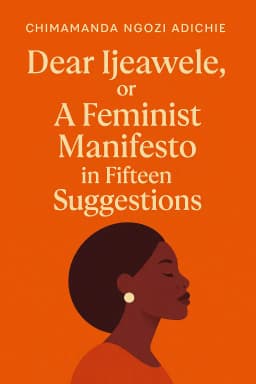
Breaking the Paradigm
Golden Hook & Introduction
SECTION
Michael: Most of us think science is about constant, brilliant discovery. A steady march of progress, right? What if I told you that for 99% of the time, science is one of the most conservative, tradition-bound, and even rigid enterprises on the planet? Kevin: Whoa, hold on. Conservative? I think of lab coats and explosions, not tradition and rigidity. That sounds completely backward. Where is this coming from? Michael: It comes from one of the most influential and controversial books of the 20th century: The Structure of Scientific Revolutions by Thomas S. Kuhn. And what's fascinating is that Kuhn wasn't a philosopher by training; he was a physicist at Harvard who had this 'Eureka!' moment in 1947. He was preparing to teach a course on the history of science and realized the neat, linear stories he'd been taught simply didn't match the messy, revolutionary reality of how science actually happens. Kevin: Okay, so a physicist looking at history and realizing the official story is wrong. I'm already intrigued. It’s like a detective discovering the crime didn’t happen the way the police report said it did. Michael: That’s a perfect way to put it. And his investigation completely upended our understanding of progress itself. He introduced ideas that were so powerful, they’ve been debated and argued over for more than 60 years. The book has a massive reputation, but it’s also deeply polarizing. Kevin: So we’re diving into some intellectual deep water today. Let’s do it. Where does he start with this idea of science being… conservative?
The Myth of Linear Progress: Normal Science and Paradigms
SECTION
Michael: He starts with a concept he calls "normal science." This is what most scientists do, most of the time. And normal science, Kuhn argues, does not aim to produce major new discoveries. In fact, it often suppresses them. Kevin: Okay, my brain just did a somersault. How can science, of all things, suppress novelty? Isn't that its entire job description? Michael: The key is another word Kuhn made famous: "paradigm." A paradigm isn't just a theory; it's an entire worldview. It’s the whole constellation of beliefs, values, and, most importantly, successful examples that a scientific community takes for granted. It’s the set of rules for the game. Kevin: So a paradigm is like the operating system for a particular field of science? Like, everyone is running 'Physics OS 2.0' and they don't question the code, they just build apps on top of it? Michael: Exactly. And "normal science" is the process of building those apps. Kuhn calls it "puzzle-solving." The paradigm has already provided the puzzle—say, calculating a planet's orbit—and it guarantees that a solution exists. The scientist's job is to be clever enough to find it. Failure doesn't reflect badly on the paradigm; it reflects badly on the scientist. Kevin: That sounds… incredibly stressful. It’s like being told, "The key is in this room. If you can't find it, you're an idiot." But it also sounds a bit trivial. Puzzle-solving? These are brilliant minds! Isn't that demeaning? Michael: It sounds that way, but Kuhn argues it's the secret to science's power. Because everyone agrees on the fundamentals, they can focus all their energy on incredibly detailed, esoteric problems. Think about Ptolemaic astronomy, the model that put Earth at the center of the universe. For over a thousand years, brilliant astronomers weren't asking, "Is the Earth really at the center?" They were solving puzzles within that system. Kevin: Right, they were adding epicycles and all those weird little circles to make the predictions match what they saw in the sky. Michael: Precisely! They were doing normal science. They were forcing nature into the pre-formed, and rather elaborate, box provided by the Ptolemaic paradigm. It was what Kuhn calls "mop-up work"—articulating the paradigm, extending its reach, and increasing the precision of the match between its predictions and the facts. Kevin: I love that phrase, "mop-up work." It's so unglamorous. So, it’s like a team of elite mechanics all working on the same model of a Formula 1 car. They're not trying to invent a helicopter; they're trying to shave a millisecond off the lap time by tweaking the engine they already have. Michael: That's a fantastic analogy. And that intense, focused effort is what makes science progress so rapidly within a paradigm. You get incredibly good at solving a certain class of problems. You develop specialized equipment, a shared language, and a deep understanding of your little corner of the universe. Kevin: But this creates a huge blind spot, right? If you're only looking for ways to make the F1 car faster, you'll never notice the principles of aerodynamics that could lead to flight. You're actively ignoring anything that doesn't fit the F1 car model. Michael: You've hit on the central tension of the whole book. Normal science is incredibly efficient at making progress, but it does so by narrowing the field of vision. Anything that doesn't fit the paradigm's box is often not seen at all. Or, if it is seen, it's dismissed as an error, an anomaly, a puzzle for another day. Kevin: "An anomaly." That sounds like the first crack in the foundation. So if everyone is just tweaking the F1 car, how does anyone ever invent the helicopter? What happens when the car starts, I don't know, randomly flying off the track?
When the Box Breaks: Anomaly, Crisis, and Revolution
SECTION
Michael: That is exactly the right question. That's when you get the shift from normal science to what Kuhn calls "extraordinary science." It begins with the persistent failure of a puzzle to be solved. That flying F1 car is what Kuhn calls an "anomaly." Kevin: A glitch in the matrix. Michael: A glitch in the matrix. At first, scientists will try everything to explain it within the existing paradigm. Maybe the track was oily. Maybe the driver made a mistake. Maybe our calculations were off. They will devote immense energy to trying to make the anomaly go away. But sometimes, it refuses to. Kevin: It just keeps happening. The data stubbornly says, "Your model is wrong." Michael: And when that happens, and especially when the anomaly strikes at the very core of the paradigm, the field enters a state of "crisis." This is a fascinating period. The rules of the game get looser. Scientists start questioning the fundamentals they'd taken for granted their whole careers. Kevin: So there's this period of intense professional insecurity. The tools that have worked your whole life suddenly fail. It's not just an intellectual problem; it's a crisis of faith in your entire worldview. I remember reading that Einstein described the feeling before his theory of relativity, saying it was as if "the ground had been pulled out from under one." Michael: That's the perfect quote for it. And during this crisis, you see a proliferation of new, wild theories. Everyone starts proposing different solutions. The field starts to look a lot like it did in the "pre-paradigm" days, with competing schools of thought and no clear consensus. It's a sign that the old paradigm is breaking down. Kevin: It's like the F1 team, after the car flies off the track for the tenth time, finally throws their hands up. One guy starts sketching a plane, another is building a boat, a third is trying to invent a teleporter. The old rulebook is out the window. Michael: Exactly. And into this chaos, a new candidate for a paradigm might emerge. This is the "scientific revolution." A classic example is the discovery of X-rays. In 1895, Wilhelm Roentgen was doing normal research with a cathode ray tube. It was a standard piece of equipment, and the paradigm told him what to expect. Kevin: He was just solving a puzzle. Mop-up work. Michael: Mop-up work. But he noticed a barium screen across the room was glowing. It shouldn't have been. The tube was shielded. Something was coming out of the tube that the paradigm had no place for. It was a profound anomaly. Kevin: And I bet his first thought was, "I messed up. My equipment is broken." Michael: Of course. He checked everything. But the glow persisted. He was seeing something that, according to the science of the day, was impossible. This anomaly was so profound it led to a crisis, not just for him but for physics. The result was the discovery of a new kind of radiation—X-rays—and it required a whole new box, a whole new set of rules to understand. Kevin: So the revolution isn't the discovery itself. The revolution is the messy, confusing, crisis-ridden process that the discovery kicks off. It's the fight to build a new paradigm to explain the thing that broke the old one. Michael: Precisely. And the new paradigm doesn't just add a new fact to the old pile. It forces a complete re-evaluation of everything. And when a new paradigm finally wins, the change is so profound that Kuhn argues the scientists are, in a way, living in a different world.
Living in a Different World: Incommensurability and Progress
SECTION
Kevin: Okay, "living in a different world" sounds like science fiction. What does he mean by that? The lab is the same, the chemicals are the same. How can the world be different? Michael: This is Kuhn's most radical and controversial idea: "incommensurability." It means that two paradigms are so different that they can't be measured by the same stick. They don't just disagree on the answers; they disagree on the questions, on the standards of evidence, even on the meaning of basic terms. Kevin: Give me an example. This is hurting my brain. Michael: Let's go back to chemistry. Before the chemical revolution in the late 18th century, the dominant paradigm was the phlogiston theory. When something burned, chemists "saw" a substance called phlogiston being released from it. Wood was a compound of ash and phlogiston. When you burned it, the phlogiston escaped, leaving the ash. Kevin: Makes a kind of intuitive sense. Fire stuff leaves the wood. Michael: It did! It was a very successful paradigm for a long time. But then came Lavoisier. After his revolution, chemists looked at the same burning log and "saw" something completely different. They saw oxygen from the air being absorbed by the wood in a process of combustion. The very direction of the process was reversed. They were looking at the same phenomenon, but they were seeing different things. Kevin: Oh, I get it. It's that famous drawing, the duck-rabbit illusion. You can see a duck, or you can see a rabbit, but you can't see both at the same time. The lines on the page are identical, but their meaning, their relationship to each other, is totally different depending on which you see. Michael: That is the perfect analogy. Kuhn uses the term "gestalt switch." And the key is, you can't use "duck logic" to prove that the rabbit is wrong. The proponent of the duck paradigm will point to the "bill," while the rabbit proponent points to the "ears." They're talking past each other. Kevin: So after a revolution, an Aristotelian physicist who sees a swinging rock as a case of "constrained fall"—an object trying to get to its natural resting place—is literally seeing something different from Galileo, who sees a "pendulum"—an object repeating a motion over and over. Michael: Exactly. And Galileo's new way of seeing—his new paradigm—allowed him to ask questions about periods and frequencies that would have made no sense to the Aristotelian. The world of problems changed. The world of what counted as an "explanation" changed. They were incommensurable. Kevin: This has huge implications. If you can't compare paradigms on a neutral basis, how can you say science is making "progress"? How do you know the new paradigm is "better" or "truer" than the old one? It sounds like you're just swapping one belief system for another. This is why he got accused of relativism, isn't it? Michael: This is the heart of the controversy that has raged around this book for decades. Critics said Kuhn was making science seem irrational, a matter of mob psychology rather than logical proof. Kevin: So what was his answer? Does science actually make progress? Are we getting closer to "The Truth"?
Synthesis & Takeaways
SECTION
Michael: Kuhn's answer is subtle and, for many, unsatisfying. He suggests we need to abandon the idea that science is progressing toward some final, objective truth about reality. He says that's the wrong metaphor. Kevin: So what's the right one? Michael: Evolution. Charles Darwin's theory of evolution isn't a process moving toward some perfect, pre-ordained final creature. It's a process of evolution away from earlier, less adapted forms. It's a process of solving immediate environmental problems. Kevin: Huh. So a new paradigm isn't necessarily "truer" in some absolute sense, but it's better at solving the puzzles that the scientific community currently faces. It's a more powerful tool for the job at hand. Michael: Precisely. The Copernican model wasn't actually more accurate than Ptolemy's when it was first proposed. But it was neater, more elegant, and it promised to solve problems—like the calendar—that the old paradigm was struggling with. It was chosen for its future promise. Progress, for Kuhn, is an increase in the ability of a scientific community to solve its puzzles. Kevin: So we are getting better, but not necessarily closer to a final destination. We're just getting better tools to navigate the terrain we're in right now. That's a really different way of looking at it. It's less about ultimate truth and more about functional power. Michael: It completely reframes the goal. And it makes science a deeply human enterprise, full of belief, persuasion, and moments of crisis and conversion, not just cold, hard logic. It forces us to ask a really fundamental question. Kevin: What's that? Michael: Is the goal of science to find truth, or is it simply to solve problems? Kevin: That is a huge question. It changes everything. And I think it's a perfect place for our listeners to jump in. Does this Kuhnian model change how you see science? Is it a more realistic picture, or a more cynical one? We'd love to know what you all think. Let us know your thoughts on our social channels. Michael: It’s a conversation that’s been going on for over half a century, and it’s as relevant as ever. Kevin: Absolutely. What a mind-bending journey. Michael: This is Aibrary, signing off.









